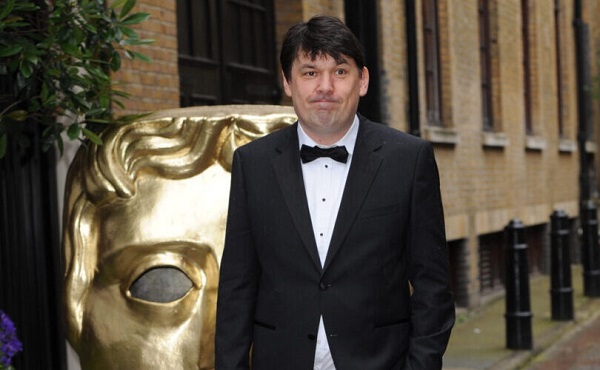espionage
Days Ahead of Critical Vote, Taiwan Accuses China of ‘Unprecedented’ Election Interference

With two days remaining until a landmark recall referendum that could unseat nearly a quarter of Taiwan’s legislature, the government’s Mainland Affairs Council (MAC) has issued a stark warning: the Chinese Communist Party is engaging in “unprecedented” interference aimed at influencing the outcome.
In a rare statement released Tuesday, the MAC accused Beijing of flooding social media platforms and Taiwanese media outlets with targeted disinformation to sway the July 26 vote. According to the Council, the CCP’s Taiwan Affairs Office and state-run propaganda outlets have published and circulated “hundreds” of articles and videos across WeChat, TikTok, and Weibo — content that has then been amplified through local news outlets, often distorted to fit CCP narratives.
The scale of Beijing’s interference is “without disguise,” the MAC said.
“Through repeated pushes on Weibo, TikTok, and WeChat, and through reports by relevant Taiwanese media, [that] were processed and exaggerated, and repeatedly spread at multiple levels,” the MAC’s statement says, Beijing’s “degree of deliberate intervention was unprecedented.”
The statement comes amid growing concern in Taipei and Washington that the Chinese government is using Taiwan’s opposition Kuomintang (KMT) party — which has long favored closer ties with Beijing — as a proxy to destabilize the Lai Ching-te administration and cripple national defense efforts. The MAC, Taiwan’s top agency for dealing with the People’s Republic of China, underscored that while Taiwan’s elections and recall votes are “basic rights granted to the people,” the CCP “has no right to intervene.”
That concern was reinforced Wednesday morning by Joseph Wu, Secretary-General of Taiwan’s National Security Council and the nation’s former foreign minister. Wu posted a stark warning on social media following a Ministry of National Defense bulletin reporting the detection of 48 Chinese military aircraft and 9 PLAN warships operating around Taiwan. “Taiwan will hold recall elections this Saturday – an exercise of democracy enshrined by our constitution. Unfortunately, China won’t miss this opportunity to interfere, through military coercion and disinformation,” Wu wrote. The MND said 36 of the PLA sorties had crossed the Taiwan Strait median line or entered Taiwan’s Air Defense Identification Zones (ADIZ), describing the moves as part of a coordinated gray-zone campaign.
The Bureau previously reported that the July 26 referendum marks the largest coordinated recall effort in the island’s history. If successful, it could remove 24 KMT lawmakers who recall organizers say have consistently obstructed legislation aimed at deterring Beijing’s influence operations and bolstering military readiness.
President Lai has backed the recall effort as a national security imperative, warning that China’s goal is to “absorb Taiwan’s institutions from within.” He has accused certain KMT lawmakers of undermining sovereignty through opposition to defense budgets, support for cross-strait trade policies that benefit Beijing, and even alleged leaks of classified defense information.
Beijing, in turn, has reacted furiously. Days after Lai launched a “Unity for Taiwan” national speech tour, the CCP’s Taiwan Affairs Office accused the president of inciting a “political struggle for personal gain,” and blasted his assertion that “Taiwan is of course a country” as a “hostile provocation.”
In Washington, senior officials are watching closely. Earlier this year, senators Dan Sullivan and Angus King sharply criticized the KMT’s efforts to slash Taiwan’s proposed defense budget, calling it a dangerous signal amid rising threats from the People’s Liberation Army.
Meanwhile, civil society groups in Taiwan have framed the recall as a grassroots effort to purge Beijing’s covert United Front infiltration operations from the legislature. The campaign has been spearheaded by activists and supported by billionaire Robert Tsao, who described the moment as “Taiwan’s last chance” to stop a slow internal takeover.
The Bureau is a reader-supported publication.
To receive new posts and support my work, consider becoming a free or paid subscriber.
Invite your friends and earn rewards
Business
A Nation Built on Sand: How Canada Squanders Its Abundance
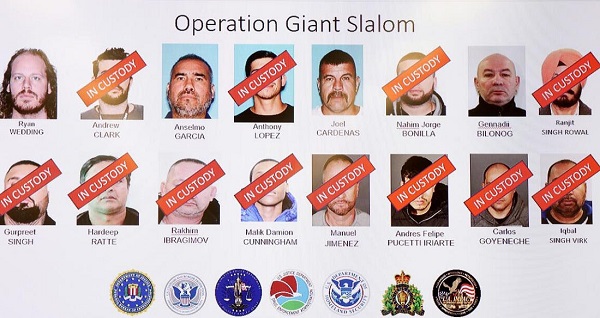
By Garry Clement
Columnist Garry Clement, former RCMP anti–money laundering expert, argues Canada’s leaders have built prosperity on sand — leaving the nation exposed to collapse unless urgent reforms are made.
Canada is celebrated abroad as a safe, prosperous, and open society. But beneath the surface, a far more precarious reality is taking shape. The pillars of our economy — land, real estate, natural resources, and immigration — have been left vulnerable to foreign manipulation, criminal exploitation, and political negligence. The result is what can only be described as a sandcastle economy — striking at first glance, but fragile. Like the parable of the house built on sand, it is a foundation vulnerable to give way when the storm comes.
Investigative journalist Sam Cooper has long warned that foreign capital and organized crime have deeply infiltrated Canada’s real estate market. On Prince Edward Island, the Bliss and Wisdom Buddhist group quietly acquired swaths of farmland and property, raising questions about how religious fronts with Chinese connections gained such leverage in a province with limited oversight. In Saskatchewan, Chinese investors have been buying up valuable farmland, raising alarms about food sovereignty and the lack of restrictions on foreign ownership of agricultural land. Meanwhile in British Columbia, governments continue to downplay or outright ignore the extent to which transnational money laundering has fueled a housing market now completely detached from local incomes.
All of this has unfolded against a backdrop of minimal transparency, weak beneficial ownership registries, and virtually no effective enforcement. The same blind spots that allowed casinos and luxury real estate in Vancouver to become laundromats for dirty money are now being replicated nationwide.
The most urgent threat tied to these financial blind spots is fentanyl. Canada has become one of the world’s top destinations for proceeds from synthetic drug trafficking — a crisis that has devastated families from coast to coast. Chinese triads, Mexican cartels, and local gangs launder profits through casinos, shell companies, and real estate deals. Yet federal legislation continues to lag behind, leaving law enforcement outgunned. Every toxic opioid death in Canada is not only a health tragedy, but also a reminder of how organized crime is exploiting our lax financial controls. While other countries have implemented tough anti-money laundering regimes, Canada remains dangerously complacent.
That same complacency extends to national security. Canada has repeatedly delayed designating Iran’s Islamic Revolutionary Guard Corps as a terrorist organization, despite overwhelming evidence of its involvement in financing terrorism and conducting influence operations abroad. Our allies — including the United States — have acted. Canada, however, remains an outlier, seemingly unwilling to confront the risk of Iranian proxy activity operating in plain sight within our borders.
Immigration policy reveals similar weaknesses. Foreign students, particularly from India, have become central to the financial survival of colleges and universities. Yet a growing number are not here primarily to study. Instead, education visas have become a backdoor into Canada’s workforce, particularly in industries such as trucking. The tragic Humboldt Broncos bus crash in 2018 exposed gaps in training and licensing in the trucking sector. Since then, reports have continued to surface of foreign students entering the industry without adequate skills — a risk not only to public safety but to the integrity of our immigration system. Ottawa has failed to adequately regulate this pipeline, preferring instead to rely on the tuition dollars and temporary labour it generates.
Editor’s Note: Forthcoming Bureau investigations, citing U.S. government sources, question how widespread fraud and Indian transnational crime capture of Canada’s commercial trucking industry have fueled the flow of fentanyl, cocaine, and methamphetamine — turning the country into a weak link for its international allies.
The threads running through these crises are clear: willful blindness, weak laws, and short-term political expediency. Land and natural resources are being sold without regard for sovereignty. Real estate markets are distorted by laundered money. Organized crime groups funnel fentanyl profits into Canada with ease. The IRGC operates without effective restriction. And the education system is exploited as a labour channel, with little oversight. Canada is, in effect, trading away its long-term security for short-term economic gains.
Politicians, bureaucrats, and regulators too often dismiss warnings as alarmist or xenophobic, when in fact they reflect real risks to the stability of the country. A sandcastle can stand tall on the shore, admired in the moment, but everyone knows what comes next. Unless urgent steps are taken — enforcing transparency in land ownership, restricting foreign control of farmland and resources, tightening anti-money laundering measures, confronting hostile foreign actors, and restoring integrity to the education and immigration systems — collapse is inevitable.
The signs are already here: families priced out of homes, farmers squeezed out of land, fentanyl overdoses climbing, and a public losing faith in the fairness of the system. Canada prides itself on being open and inclusive. But openness without vigilance is vulnerability. Like unwise stewards, our leaders have been gifted with a land of overflowing abundance, and yet they have squandered its potential through short-sighted choices. That failure must be corrected — immediately and wisely — if the nation is to not only thrive, but survive.
The Bureau is a reader-supported publication.
To receive new posts and support my work, consider becoming a free or paid subscriber.
Former senior RCMP officer Garry Clement consults with corporations on anti-money laundering, contributed to the Canadian academic text Dirty Money, and wrote Canada Under Siege, and Undercover, In the Shady World of Organized Crime and the RCMP
espionage
Ghislaine Maxwell Proffer: A Daughter Acknowledges Her Father’s Espionage Shadows but Denies Epstein’s Sex-Blackmail Op Rumors

In July 2025, inside a sealed Justice Department conference room in Tallahassee, Ghislaine Maxwell spoke at length about her life with Jeffrey Epstein. Across two days of questioning, she confronted the themes that now shadow the American administration and some of the world’s most powerful men: was her father, Robert Maxwell, the root of a sprawling intelligence operation—one that extended through his daughter’s relationship with the mysteriously wealthy Epstein and reached leaders from Prince Andrew to Bill Clinton and even Donald Trump?
The session was not a cooperation deal or plea bargain but a proffer under limited immunity. Prosecutors could impeach Maxwell if she later contradicted herself.

Maxwell sat with her lawyers. Across the table were Deputy Attorney General Todd Blanche, FBI Special Agent Spencer Horn, and Deputy U.S. Marshal Mark Beard. Their questions probed Epstein’s fortune, his circle of elites, the persistent intelligence rumors, and his death.
On Friday afternoon, the Justice Department released hundreds of pages of partially redacted transcripts and audio recordings from the interviews. The White House presented this as a gesture of transparency amid backlash from Trump’s base and criticism from Democrats. The redactions, though extensive in places, still allowed readers to follow the central exchanges.
The closest Maxwell came to portraying Epstein as involved in anything “covert” or “nefarious” was in a curious recollection: “He showed me a photograph of himself with African warlords… He said he was in the business of finding stolen money for billionaires. He would take a percentage of what he recovered.”
Did Maxwell—who has already been convicted of perjury—lie again to shield powerful friends?
One exchange, centering on perhaps the most notorious and publicly recognized piece of evidence in the Epstein saga, suggests she may have.
Blanche: “The photograph of Prince Andrew with Virginia Giuffre has been described as one of the most consequential pieces of evidence. How do you respond?”
Maxwell: “It’s manufactured. Literally a fake photo. My London flat was too small to host such an encounter, and the date on the back doesn’t match flight logs. My friendship with Andrew made him trust Epstein more, but I had nothing to do with that picture.”
On Robert Maxwell and Intelligence
Blanche: “With respect to your father, there have been multiple questions about whether he worked for any intelligence agency. Do you have any knowledge about that?”
Maxwell: “I think—well certainly my father had a background in intelligence… I believe he did in the second World War. He was… a British intelligence officer. I think that… once you’ve been an intelligence officer, you’re kind of—always; it doesn’t mean that you’re formally employed.”
She added she had “no formal knowledge” of specific activities, but believed he “did help people.”
On whether Robert Maxwell ever introduced her to Epstein, she was emphatic: “They never met… I know they never met.” She said her father vetted Epstein through Bear Stearns leaders “Jimmy Cayne and… Ace Greenberg.”
Maxwell’s words were cautious, but telling. She essentially confirmed what intelligence veterans often describe: once active in that world, many never fully leave. By her account, her father lived as a businessman and politician but remained an informal node in intelligence—“trading business or ideas” with powerful people and institutions.
This amounts to an acknowledgment: Robert Maxwell lived and died inside the world of intelligence. His role as publisher, financier, and political broker likely made him a valuable cutout, and that was likely a profitable arrangement for his family. Plausible reporting over decades has strongly supported ties to MI6 and Mossad. The most persistent allegations involve the sale of bugged PROMIS software to U.S. government agencies on behalf of Israel’s Mossad, and financial dealings with Soviet bloc actors. None of these claims have been proven in court. But the limited comments of Ghislaine Maxwell suggest she knew her father’s business well.
On Epstein, Mossad, CIA, and the FBI
Blanche: “Have you ever had any contact… from Mossad…?”
Maxwell: “Well, not deliberately… Not deliberately.”
Blanche: “Did you ever think that Mr. Epstein was getting any money from any intelligence agency, including Mossad?”
Maxwell: “Well, I don’t believe so, but I wouldn’t know. I mean, I would be very surprised if he did. I don’t think so. No.”
Horn: “CIA? DIA?”
Maxwell: “I don’t think so. I just don’t think he had the wherewithal, and I think that whole aspect is bullshit.”
Her denials stand in contrast with reasonably credible, though not court-validated, media reporting. In 2019, journalist Vicky Ward reported in The Daily Beast that a former White House official said they had heard Alexander Acosta—then U.S. Attorney for the Southern District of Florida, who handled Epstein’s 2007 plea deal at the end of the George W. Bush presidency—tell Trump transition interviewers in 2017: “I was told Epstein ‘belonged to intelligence’ and to ‘leave it alone,’” adding that Epstein was “above his pay grade.”
Epstein’s Suspicious Wealth
Blanche: “How did Epstein make his money?”
Maxwell: “He started as a math teacher at Dalton. From there he was hired by Bear Stearns… At Bear Stearns, he developed some new type of trading system—a trading vehicle. Then, after a disagreement, he left. That’s when he said he was in the business of finding stolen money for billionaires. He would take a percentage of what he recovered. But I was not part of his business world, except tangentially.”
She identified “very important clients”: Les Wexner—for whom Epstein “structured or restructured The Limited,” handled “his entire personal finances,” and “all of the investment strategy” (she speculated the 71st-Street townhouse, the vast Upper East Side mansion that became Epstein’s New York base, factored into compensation); Leon Black—“the same as what he did for Wexner”; another connected female in their circle provided the—“same help in business,” and even “contracts for the maids”; and there was an unnamed wealthy Ohio woman with “the largest Klein painting.”
Rumors have long swirled that Epstein’s fortune was less about finance and more about leverage — that his friendships with billionaires, politicians, and world leaders provided opportunities for kompromat, even blackmail. Investigators, journalists, and critics have speculated that his homes may have doubled as “honey traps,” recording powerful men in compromising situations to secure influence.
On blackmail: “Never. No… I thought he was a legitimate businessman, very conscientious, very good at math.”
On Clinton, Trump, Barak, and Movie Stars
Blanche: “You’ve been named on flight logs with President Clinton. How would you describe his relationship with Mr. Epstein?”
Maxwell: “President Clinton was my friend. Not Epstein’s… Clinton traveled on Epstein’s plane twenty-six times, or whatever the flight logs say. I was there. He never received a massage. I never saw anything improper.”
Blanche: “Did you ever see Mr. Clinton participate in massages or any improper behavior with young women?”
Maxwell: “No. Never. I was there. He never received a massage. I never saw anything improper.”
On specifics, she described joint travel:
- Cuba, where she said Clinton met Fidel Castro.
- Italy, a Vatican visit with Clinton aide Mark Middleton and Middleton’s wife to see Henry VIII’s divorce documents.
- Africa, where Clinton flew with Chris Tucker and Kevin Spacey aboard Epstein’s jet.
She also volunteered: “I was very central in the ramp-up [of] the Clinton Global Initiative” and suggested Epstein “may have helped me help them” financially—without details.
Blanche: “What about Donald Trump? Your name and his are often linked through Epstein.”
Maxwell: “My father knew Trump. I admired him… Trump was never inappropriate with anybody. Never.”
Blanche: “Did you ever see Mr. Trump at Epstein’s homes or on his planes?”
Maxwell: “No. I never saw anything like that. I never saw him in any improper context with Epstein.”
Horn: “We’ve seen reports of Epstein’s relationship with Ehud Barak. Given your father’s deep ties to Israel, what was your impression of that connection?”
Maxwell: “I can think of Ehud Barak, yes. But I don’t know the details of their relationship. My father loved Israel, so I pay attention to it. We have ties to Israel. But I can’t tell you more.”
On the “Black Book”
Blanche: “Was there a client list? A black book of names?”
Maxwell: “There is no list. We’ll start with that… Nothing like that.”
On Epstein’s Prison Death
Maxwell said she does not believe Epstein killed himself, but also rejected the idea that he was silenced to protect powerful figures.
“I do not believe he died by suicide, no,” Maxwell said.
When asked if she had any theory about who might have killed him, she replied, “I don’t.” Pressed further on whether she thought Epstein was murdered to “keep him quiet” because he had information about “rich and powerful people,” she answered, “I do not have any reason to believe that.”
“And I also think it’s ludicrous,” she added, noting that if such people had wanted him dead, “they would’ve had plenty of opportunity when he wasn’t in jail.”
The Bureau is a reader-supported publication.
To receive new posts and support my work, consider becoming a free or paid subscriber.
-
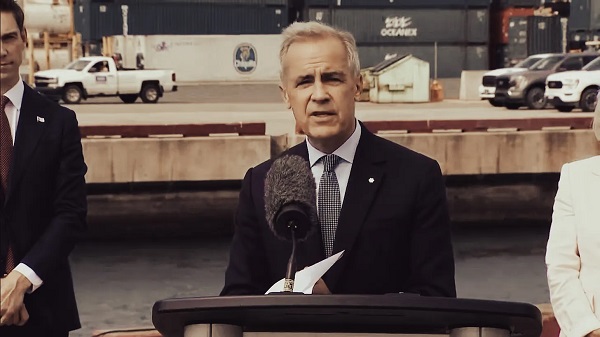
 Business2 days ago
Business2 days agoMark Carney’s Climate Competitiveness Pitch Falls Flat
-

 Business2 days ago
Business2 days agoCanada Post is broken beyond repair
-
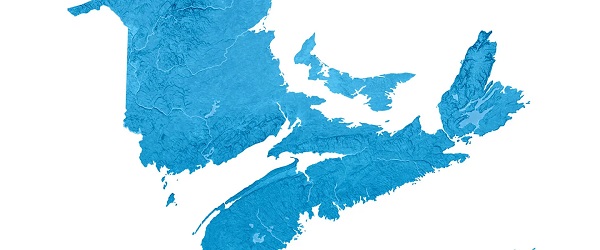
 Alberta2 days ago
Alberta2 days agoMaritime provinces can enact policies to reduce reliance on Alberta… ehem.. Ottawa
-

 Business2 days ago
Business2 days agoCanada can’t allow so many people to say ‘no’ to energy projects
-
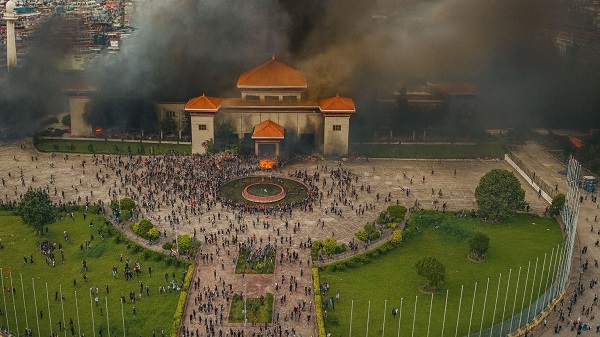
 International2 days ago
International2 days agoNepal Tried To Censor The Internet. Young People Set Parliament on Fire.
-
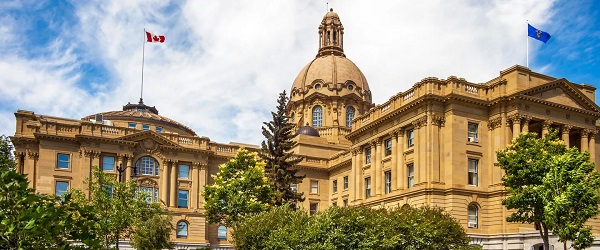
 Alberta2 days ago
Alberta2 days agoYes Alberta has a spending problem. But it has solutions too
-
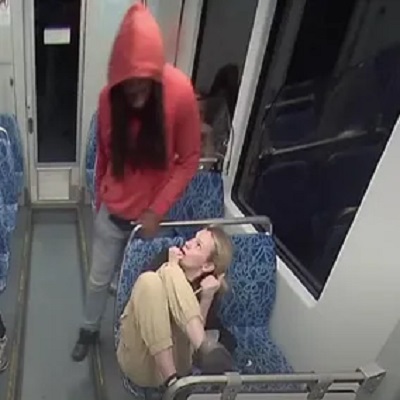
 Crime2 days ago
Crime2 days agoCharlotte train killer hit with federal murder charge, faces max penalty
-
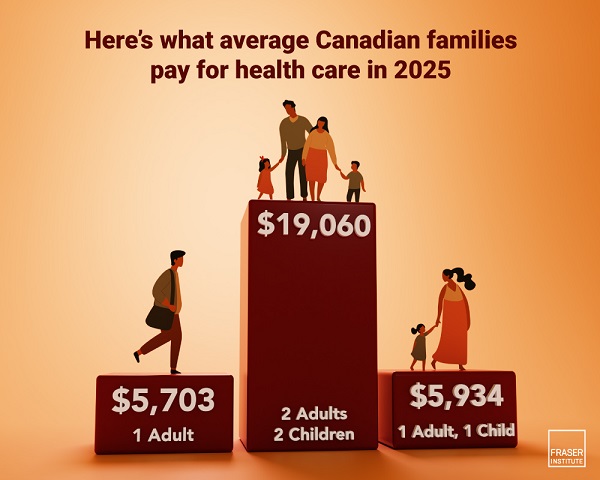
 Business1 day ago
Business1 day agoHealth-care costs for typical Canadian family will reach over $19,000 this year









